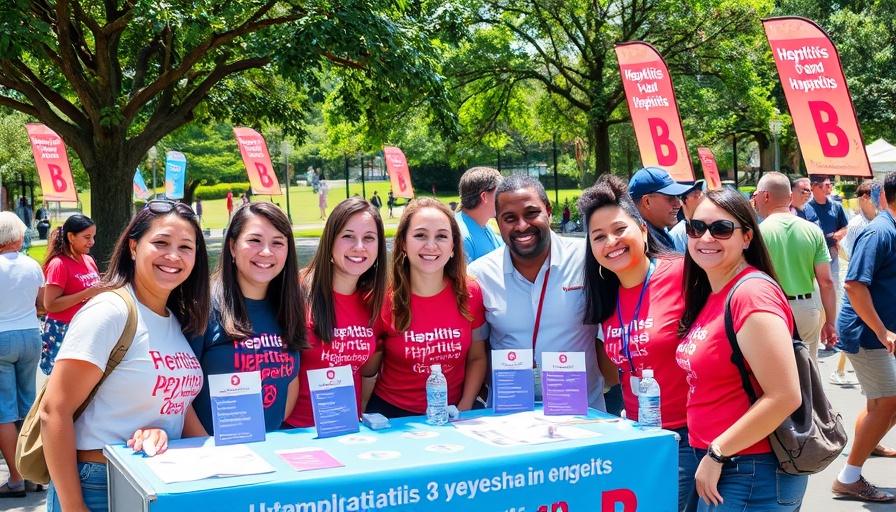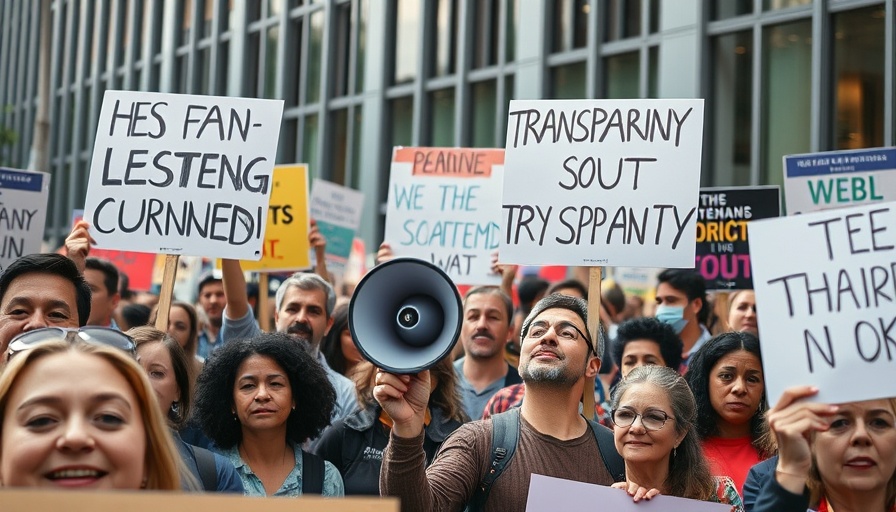
The Rise of Hepatitis B Awareness in San Francisco
In recent years, San Francisco has emerged as a beacon of hope for individuals living with chronic hepatitis B. This growth stems from a concerted community effort led by health organizers, medical professionals, and local advocates dedicated to transforming the care framework for those affected by this disease. The initiative aims to fill the gaps in understanding and treatment of hepatitis B, particularly within marginalized communities such as Asian American immigrants, who have disproportionately faced health disparities regarding this virus.
A Community-Driven Approach to Screening
One of the most significant developments in tackling hepatitis B in San Francisco is the introduction of universal hepatitis B screening in clinics like North East Medical Services. Healthcare providers are increasingly recommending screening as routine preventive care for their patients. This paradigm shift marks a significant stride in public health policy and community health education.
Historical Context: Learning from HIV/AIDS Advocacy
The roots of this initiative reach back to the early 2000s when alarming rates of hepatitis B infections among young Asian Americans prompted urgent action. Similar to the groundbreaking work done during the HIV/AIDS crisis, where community advocates played a pivotal role, hepatitis B activists have united to create a model of care that prioritizes education, outreach, and screening across healthcare systems.
The Role of Hep B Free Coalition
The Hep B Free coalition, originally founded to address the growing crisis, is revitalizing its mission by reconnecting with hospitals and healthcare providers. Under the leadership of Richard So, the coalition has become an influential voice in advocating for policies that increase access to hepatitis B testing and treatment. Recent efforts resulted in California's hepatitis screening law, which mandates insurance coverage for testing, ensuring that financial barriers are significantly lowered.
Combatting Stigma: A Necessary Battle
Despite these advancements, stigma around hepatitis B remains a significant barrier for many individuals. Health organizers emphasize the need for ongoing education to reduce misconceptions about the virus and its transmission. By fostering a supportive environment and providing accurate information, they hope to empower individuals to seek the necessary screening and treatment without fear of discrimination.
Future Predictions: What Lies Ahead for Hepatitis B Care
Looking ahead, the expansion of electronic health records (EHR) could play a crucial role in improving hepatitis B care. By implementing reminders in EHR systems for healthcare providers to offer testing, the coalition believes more patients will receive necessary screenings, ultimately leading to better management and treatment of chronic infections. Furthermore, as advocacy efforts gain national traction, San Francisco can serve as a model for other regions facing similar health challenges.
Making Informed Decisions About Health
For parents and guardians in the community, understanding hepatitis B is crucial. Knowledge of the virus not only can protect their families but also contribute to a collective effort to eliminate the stigma associated with the disease. By participating in community outreach initiatives and advocating for preventive measures, individuals can actively contribute to a healthier future for their community.
Take Action: Empower Yourself and Others
As the effort to enhance hepatitis B care continues to take shape, it's essential for individuals to get involved. Whether that means getting screened, educating peers, or supporting local health initiatives, every action counts. By prioritizing health and wellness, we can all contribute to eradicating hepatitis B stigma and improving the quality of care for those affected by this chronic illness.
 Add Row
Add Row  Add
Add 




Write A Comment